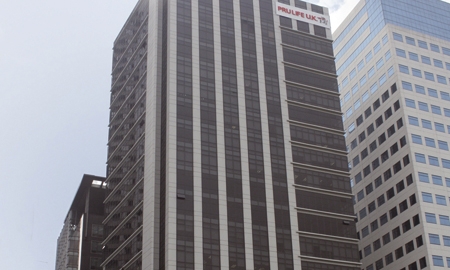The real estate industry’s rapid growth over the past several years has to do, in large part, with the maturing BPO sector. Indeed, the Business Process Association of the Philippines (BPAP) forecasts that by 2016, there will be over a million BPO employees. Consequently, as more companies move their back office to the Philippines, more offices are needed and more medium-term residential rentals are required for the company trainers and consultants while they set up shop.
And BPO isn’t the only kind of business activity that is being drawn to the Philippines. According to CB Richard Ellis Philippines, this year will see more industrial and logistics interests relocating here as wages in China go up and Thailand attempts to recover from aftermath of the floods.
The growth of these sectors is intrinsically linked to the rise of a new middle class of professionals who seek condominiums in the Metro Manila area. In fact, Filipinos are flocking to cities, attracted by jobs and financed in many cases by remittances from family members working abroad. A World Bank study has shown that the Philippines has one of the highest rates of urban growth in the developing world, at 5.1 per cent over the last 40 years. It comes as no surprise then that condominium and high-rise projects are predominating in central business districts (CBDs) and regional growth centres, such as Metro Manila, Cebu, Davao, Iloilo, Bacolod and Cagayan De Oro.
| "The Philippines has one of the highest urban growth rates among developing countries" |
Another model of residential development is also gaining popularity: the live-work-play projects, an upscale concept initially started by Megaworld in places like McKinley Hill, Bonifacio Global City, Quezon City, New Port City, and Makati among others.
The sector that the Government would earnestly like to see fuelling the real estate industry is tourism. With the airline industry more liberalised and competitive than ever, and with the Government’s tourism-related infrastructure projects underway, tourist arrival numbers are expected to climb significantly in the coming years.
Paul Vincent Chua, Associate Director for Valuation and Advisory Services at Colliers International said in a recent interview: “We will see a lot more tourism-oriented developments as we strive to enhance the beauty of the Philippines on the international scene and get more tourists to visit us.”
Moreover, the burgeoning gaming industry is also providing a draw for regional tourists. “Gaming is also seeing its way into the Philippines. Thus, hotel and leisure development for this market is expected to be strong. Thus, investment in this segment will be favourable and lucrative,” said Victor Asuncion, Executive Director for Global Research and Consultancy at CBRE Philippines.
Confidence in the sustained growth of the real estate industry is high in the Philippines, both among the private and public sectors. Rick Santos, Chairman and CEO of CBRE Philippines has said that there will be a continued show of confidence in 2012 in all sectors of the property industry. Deputy Governor of the Central Bank Diwa Guinigundo has stated that the BSP is confident that asset prices, including real estate, have not ballooned and that their movement “continues to be driven by fundamentals.”

0 COMMENTS